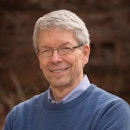The Race to Build Quantum Computers
- Speaker
-
 Steven M. Girvin, Ph.D.Eugene Higgins Professor of Physics and of Applied Physics, Yale University
Steven M. Girvin, Ph.D.Eugene Higgins Professor of Physics and of Applied Physics, Yale University
Scientific Advisory Board, Flatiron Institute
Presidential Lectures are free public colloquia centered on four main themes: Biology, Physics, Mathematics and Computer Science, and Neuroscience and Autism Science. These curated, high-level scientific talks feature leading scientists and mathematicians and are intended to foster discourse and drive discovery among the broader NYC-area research community. We invite those interested in the topic to join us for this weekly lecture series.
By clicking to watch this video, you agree to our privacy policy.
The first quantum revolution brought us the great technological advances of the 20th century—the transistor, the laser, the atomic clock and GPS. A ‘second quantum revolution’ is now underway based on our relatively new understanding of how information can be stored, manipulated and communicated using strange quantum hardware that is neither fully digital nor fully analog.
In this talk, Steven Girvin will give a gentle introduction to the basic concepts that underlie this quantum information revolution. Even more remarkable than the prospect of quantum computation, he says, is the concept of quantum error correction. Rapid theoretical and experimental progress has brought us to the threshold of the era of practical quantum error correction, and it may soon become possible to carry out nearly perfect computations using imperfect hardware.
